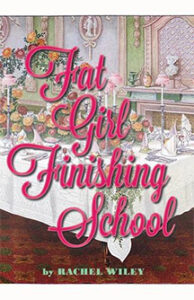This Build Your Stack post was written by NCTE member Cait O’Connor. Build Your Stack® is an NCTE initiative focused exclusively on helping teachers build their book knowledge and their classroom libraries. Build Your Stack® provides a forum for contributors to share books from their classroom experience; inclusion in a blog post does not imply endorsement or promotion of specific books by NCTE.
Growing up as a reader, I found that weight-loss narratives, fat-friend sidekicks, “funny-fat-girl” tropes, weight-based bullying tales, and restrictive eating-disorder stories were the only ways that higher-weight characters were presented. Higher-weight characters were always on a transformation journey to shrink themselves.
With the rise of the body positivity movement and the help of social media, we’re starting to see more people unapologetically loving and sharing themselves. But there are still bodies we see more than others, still bodies we celebrate more than others, and still young readers, plus-sized and not, getting the message that they need to either change their body or make it invisible.
The messages we send readers and consumers of today’s media about their bodies are downright confusing: love yourself, but only if you’re ____ (insert normative trait here). Be proud of your body, but also hide it. Wear clothes you like and feel good in, but only if they cover “unsightly” parts of you. Keep your body to yourself, but accept compliments and attention when they are directed at you.
Body positivity may have expanded the “acceptable bodies” for book characters, but this isn’t enough. It is not enough to leave our perception of a character to the imagination, or to keep leaning into sidekicks, comic relief, and narratives that offer a “fat-kid redemption story.”’ Rarely do we see or celebrate characters in body types that are real, realistic, and unapologetically big, bold, and beautiful.
The backlash often given to body positivity is that it promotes unhealthiness. To this point, I offer a counterpoint: we already promote unhealthiness by glorifying thinness, dieting, and substance misuse in our culture. Students deserve to respect their here-and-now bodies, pursue health that exists outside cosmetic change, and read about and see their here-and-now bodies in books. Providing literature that allows us and our students to feel good about all bodies enables everyone to read more fully and show up as themselves wherever they go. Below are some recommended titles.
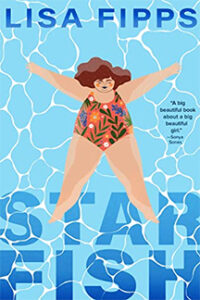 Starfish by Lisa Fipps
Starfish by Lisa Fipps
A middle-grade novel in verse about a girl named Ellie who experiences bullying from her peers and from her family due to her size. While creating her list of ”fat-girl rules,” she meets a new neighbor named Carolina and befriends her, as they celebrate what makes them each unique in a world that struggles to treat them as equal. This book is especially resonant because it is meant for middle graders, and the messaging is even more powerful when introduced this early to young readers.
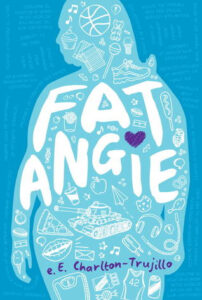 Fat Angie by e.E. Charlton Trujillo
Fat Angie by e.E. Charlton Trujillo
Fat Angie is used to it: the bullying at school, at home, and in her own head. As she navigates high school, she never loses hope that her sister, an Air Force service member, is not lost or dead in the Middle East. Along comes KC Romance, a gay, tattooed recovering self-harmer who changes her life and sees her for who she is: Angie.
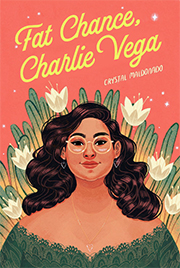 Fat Chance, Charlie Vega by Crystal Maldonado
Fat Chance, Charlie Vega by Crystal Maldonado
Charlie Vega is going through changes. In a world that wants her to change even more than she already is as a teen, it totally sucks. Her mom’s not-so-subtle messaging: thinner, lighter, smaller is better. But is it?
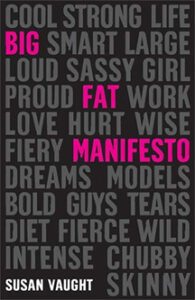 Big Fat Manifesto by Susan Vaught
Big Fat Manifesto by Susan Vaught
Jamie is a high school senior and writes for her school newspaper. She decides to turn her anti-fat bullying experience into a school paper column, which becomes the talk of the town when she decides to write about her boyfriend’s upcoming weight loss surgery. As she grapples with her boyfriend’s decision, a love triangle, and unforeseen media attention, Jamie offers humor, education and insight to readers all at the same time.
 The Other F Word: A Celebration of the Fat and Fierce by Angie Manfredi
The Other F Word: A Celebration of the Fat and Fierce by Angie Manfredi
A collection of essays, poems, memoir, and more by authors Julie Murphy, Jes Baker, David Bowles, and others, describing their experiences as unapologetically fat in a thin-centered world.
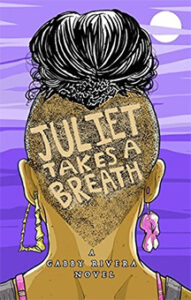 Juliet Takes a Breath by Gabby Rivera
Juliet Takes a Breath by Gabby Rivera
The night after coming out to her family, Juliet leaves for an internship in Portland for her famed and favorite feminist icon. As she becomes more aware of her body and her queerness, she defines feminism for herself. In her self-discovery, her relationships with her girlfriend Sarah and her feminist hero, Harlowe, are shattered by betrayal.
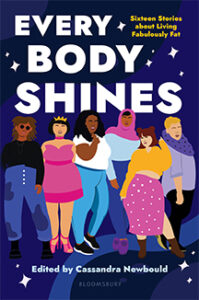 Every Body Shines: Sixteen Stories about Living Fabulously Fat (Anthology)
Every Body Shines: Sixteen Stories about Living Fabulously Fat (Anthology)
A collection of sixteen stories by and about fat characters with multiple intersections; nonbinary, athlete, astronaut, and beyond.
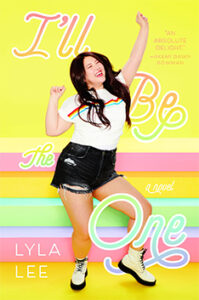 I’ll Be the One by Lyla Lee
I’ll Be the One by Lyla Lee
Skye wants to be a K-Pop dancer, but she’s always been told one thing: dancers aren’t big girls. Dancers aren’t like her. She doesn’t want to lose herself, but she doesn’t want to lose the competition to become the next K-Pop dance superstar, either.
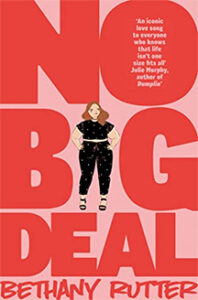 No Big Deal by Bethany Rutter
No Big Deal by Bethany Rutter
Emily doesn’t want to change herself. But her mom’s constant fad dieting, a new crush, and the doubt cast by fatphobia all make her question whether or not she is good enough for Joe.
Fat Girl Finishing School by Rachel Wiley
This collection of poems by Rachel Wiley outline what it’s like to be a fat girl in different contexts: in love, on a plane, and more. Her words are resonant, important, and powerful.
 Cait O’Connor is a secondary English teacher in New York. She is currently teaching eighth grade in Westchester County, thirty minutes outside of New York City. Her interests include mental health advocacy, floating in the pool, and spending time with her partner and pets. Twitter: @JustTeachingELA.
Cait O’Connor is a secondary English teacher in New York. She is currently teaching eighth grade in Westchester County, thirty minutes outside of New York City. Her interests include mental health advocacy, floating in the pool, and spending time with her partner and pets. Twitter: @JustTeachingELA.
NCTE and independent bookstores will receive a small commission from purchases made using the links above.
It is the policy of NCTE in all publications, including the Literacy & NCTE blog, to provide a forum for the open discussion of ideas concerning the content and the teaching of English and the language arts. Publicity accorded to any particular point of view does not imply endorsement by the Executive Committee, the Board of Directors, the staff, or the membership at large, except in announcements of policy, where such endorsement is clearly specified.


